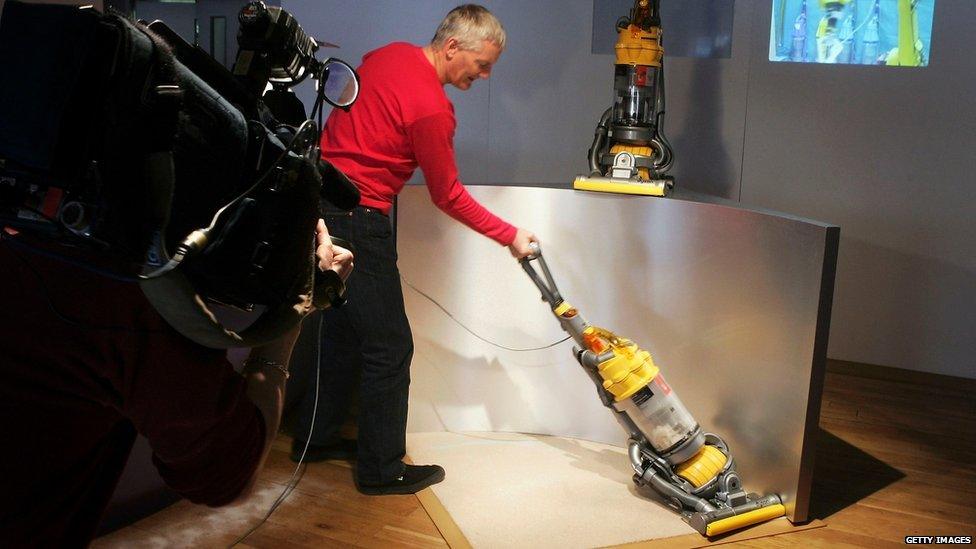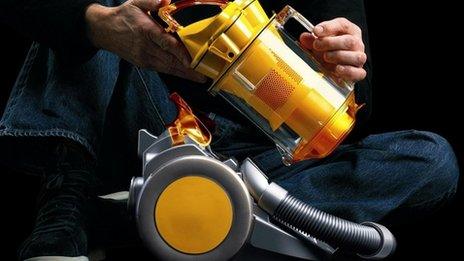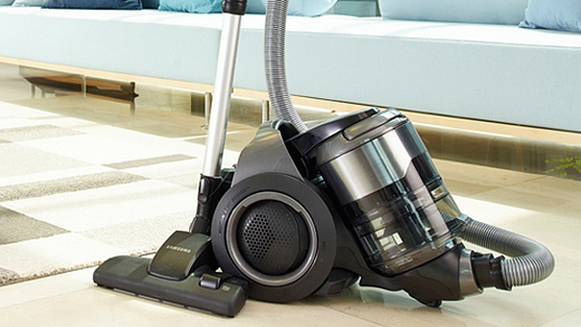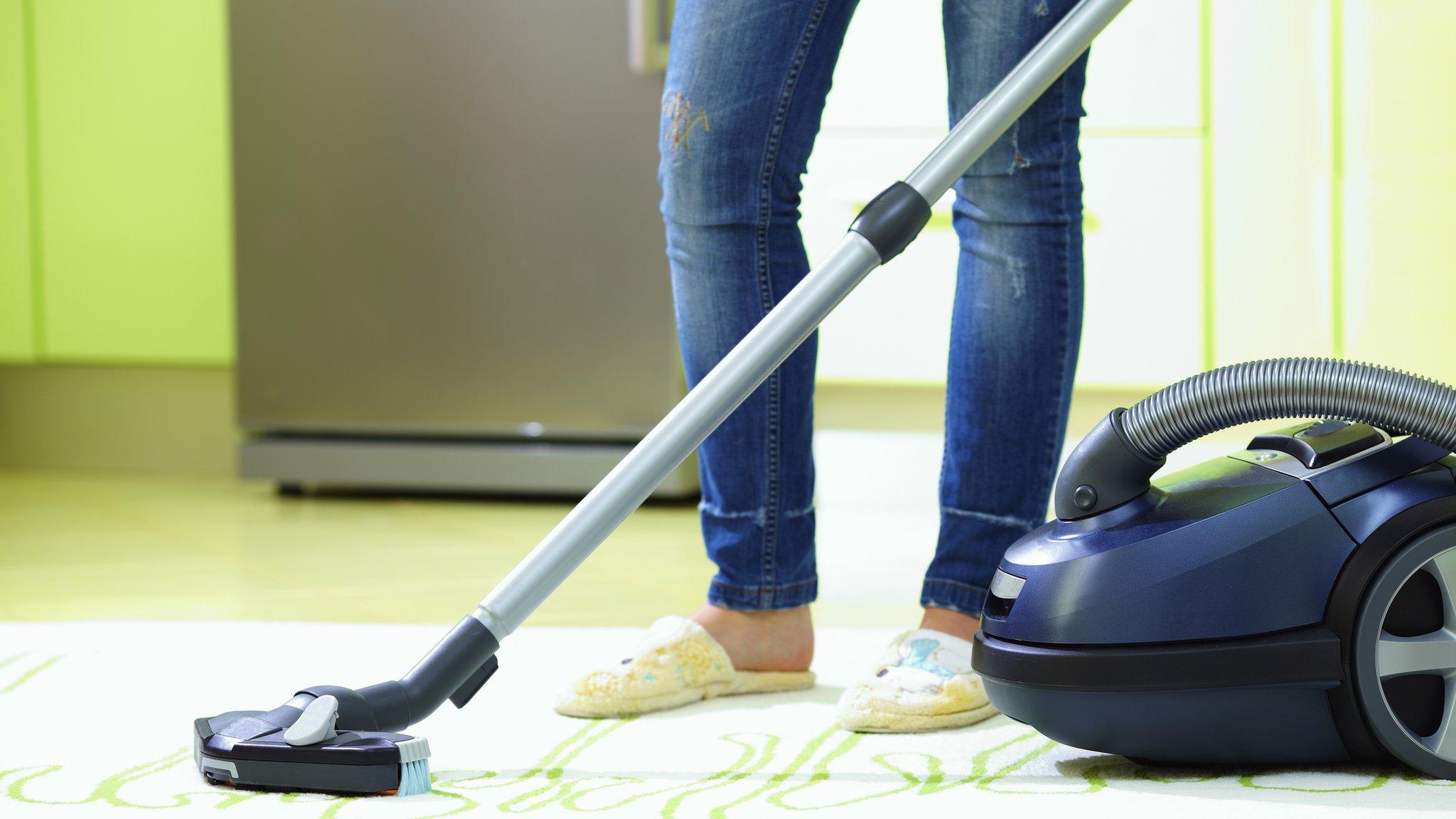Bosch and Dyson in test result dust-up
- Published

Dyson is facing legal action from rival Bosch over energy test allegations.
Dyson said last week that it had issued proceedings against its competitor, alleging that they had misled consumers in "behaviour akin to the Volkswagen scandal".
BSH Home Appliances, owned by Bosch, denied the allegations and on Wednesday announced it was initiating its own legal steps.
It called Dyson's claims "unfounded and untrue".
BSH chief executive Karsten Ottenberg said: "We have long since been aware that James Dyson has a history of taking a very aggressive approach against his competitors and has a desire to be in the public eye."
The company said all its vacuum cleaners were tested in accordance with the EU Energy Label and Ecodesign Directive for vacuum cleaners and met the standards in full.
Dyson has said independent testing had shown that machines made by Bosch and marketed under the Bosch and Siemens brands, could draw more than 1600 watts of power when used in the home despite having a rating of 750 watts.
Dyson said the machines work at a lower power setting when there is no dust, as is the case in testing situations.
Sir James Dyson's firm claimed the Siemens Q8.0 and Bosch GL80/In'Genius ProPerform models use a sensor which sends signals to the motor to increase its power as the machine sucks up dust.
- Published24 October 2012

- Published10 September 2013

- Published21 August 2014
